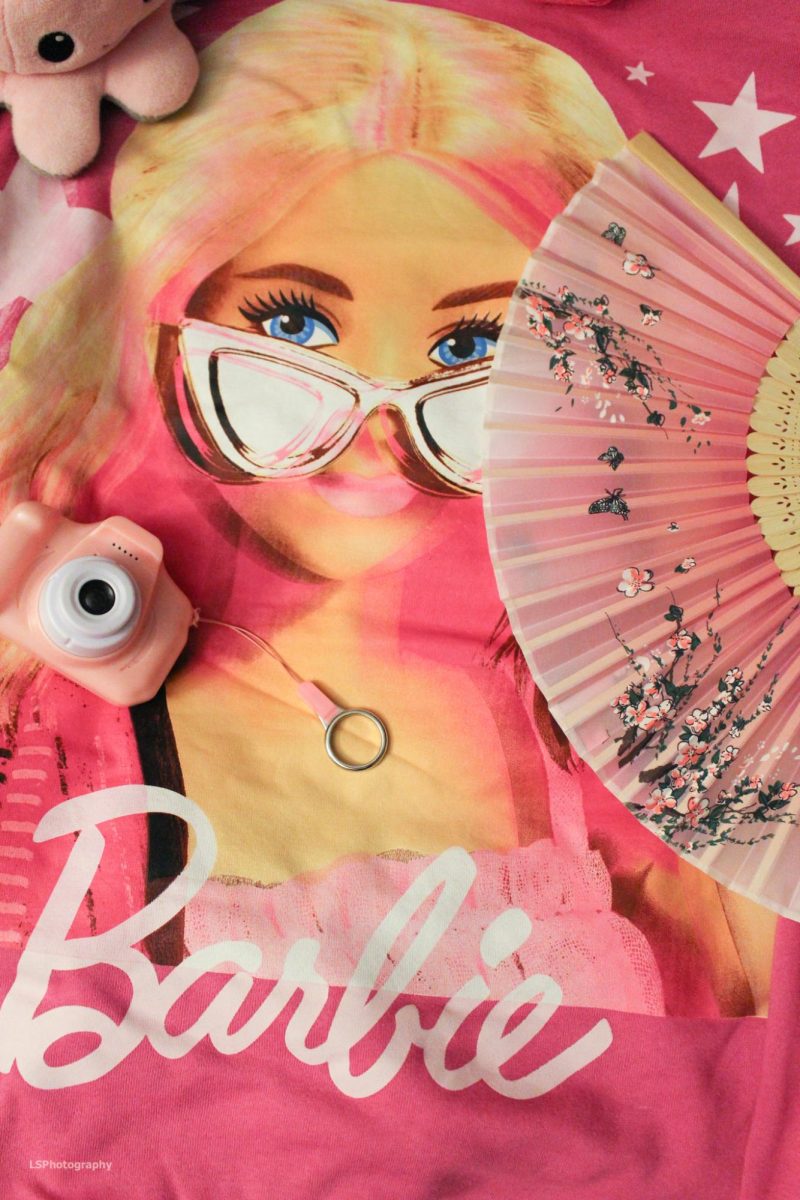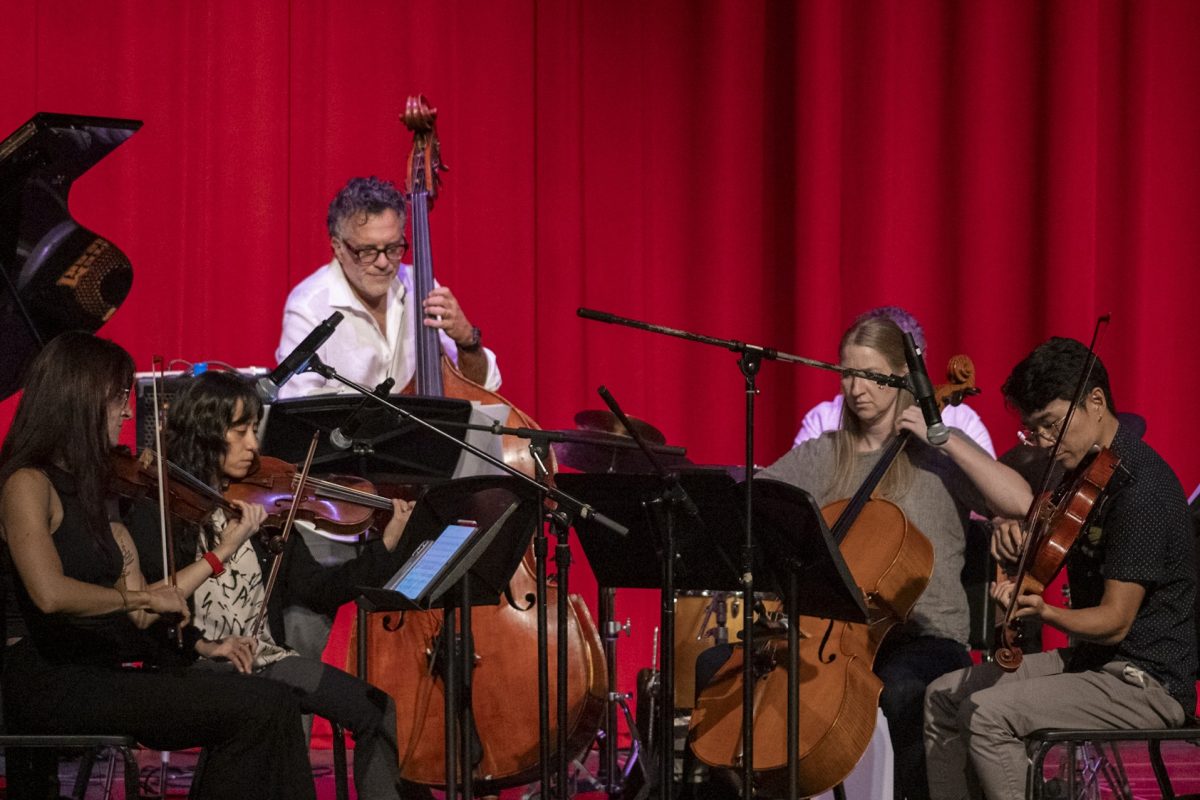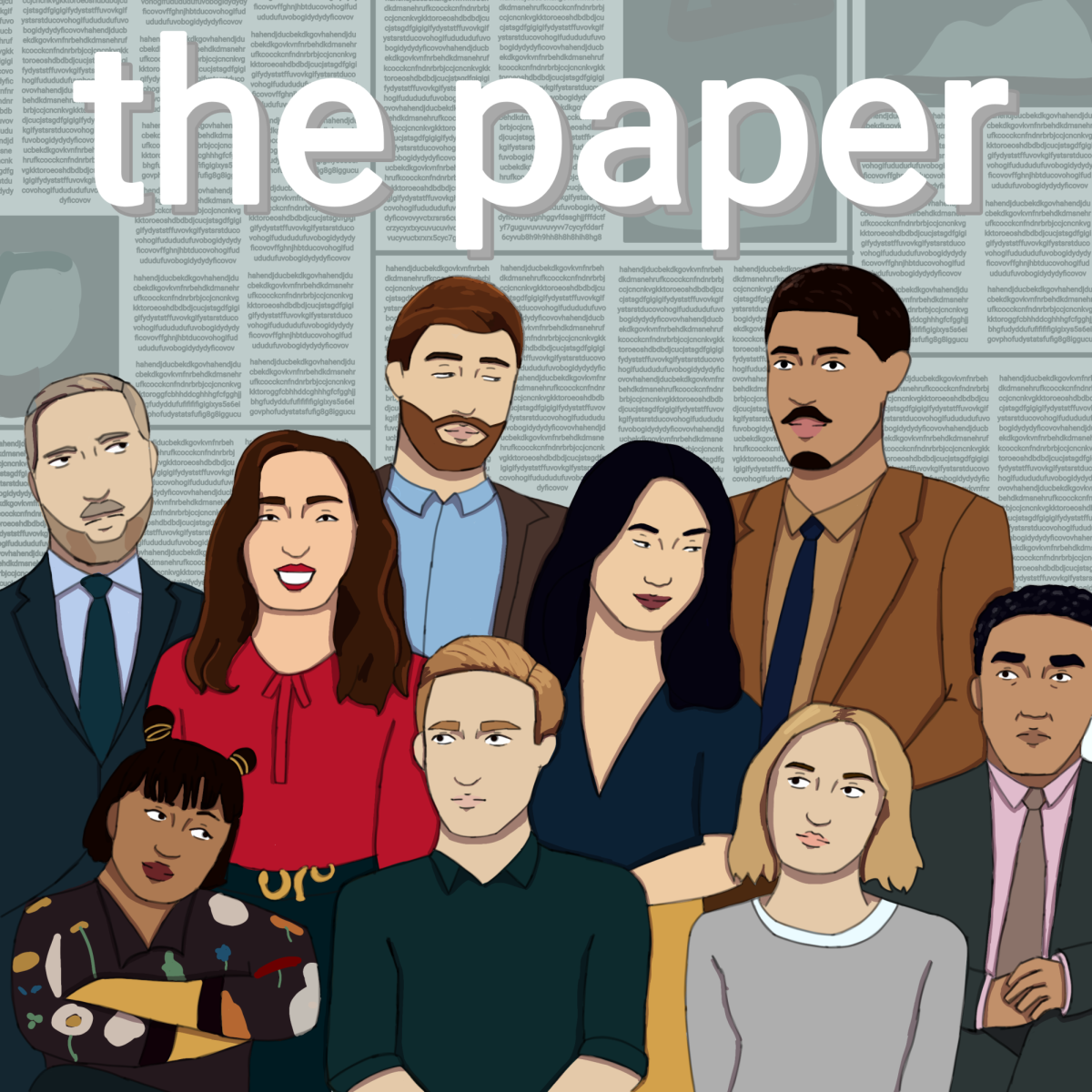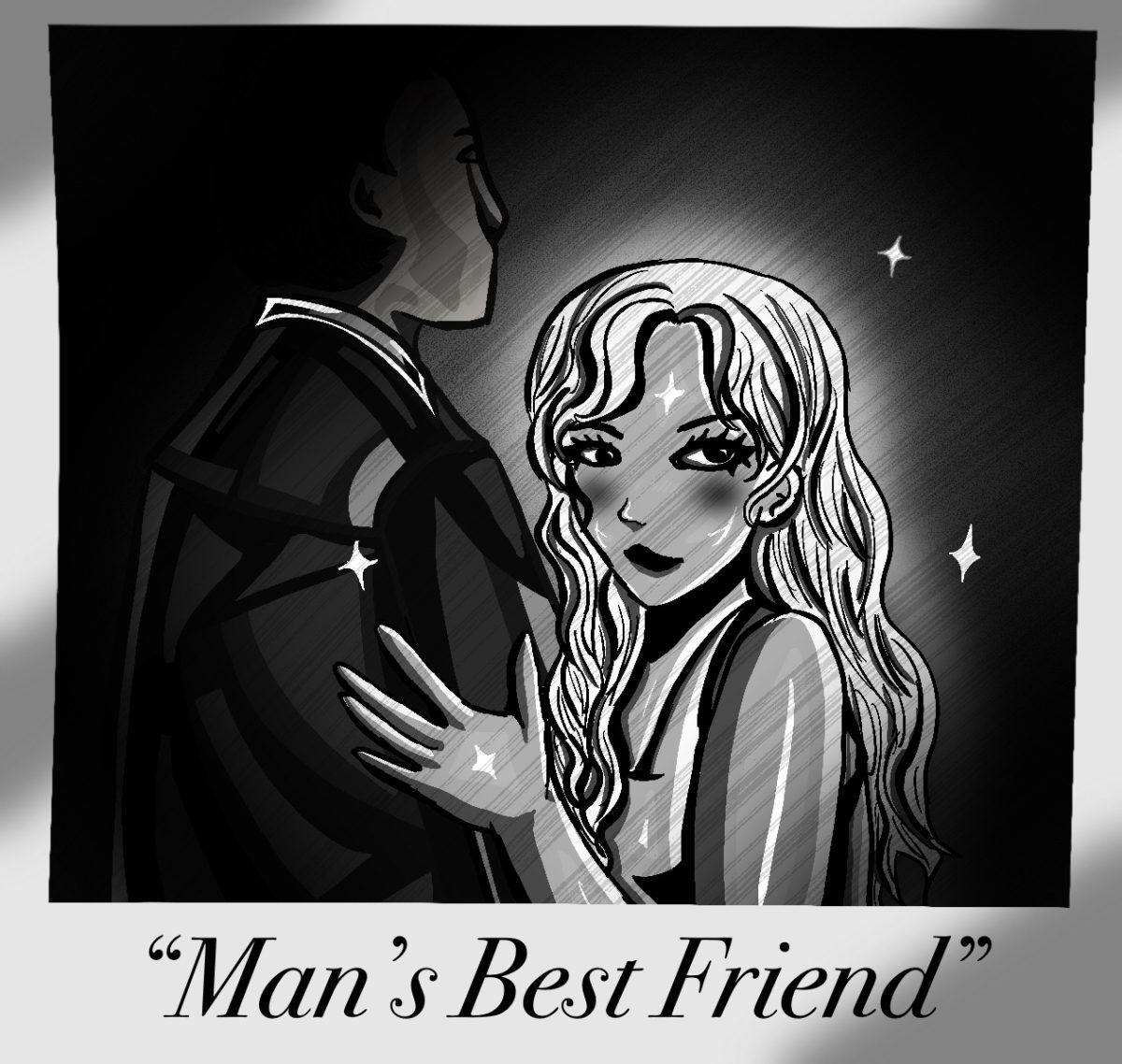Writer and Director Greta Gerwig’s 2023 film “Barbie” starring Margot Robbie unexpectedly depicts themes of patriarchal pressures on society and the continual struggle of finding a purpose, all while beautifully disguised in humor, wit, and of course, lots of pink.
“Barbie” features a star-studded cast, including Margot Robbie as Stereotypical Barbie, alongside actors Ryan Gosling, America Ferrera, Issa Rae, Will Ferrell and many more. Since its release date, the film has already broken box office records, including the biggest opening week for a female director in history.
The plot follows Barbie as she leaves her matriarchal home of Barbieland to travel to the real world and discover that society is not the way she and the rest of Barbieland always assumed. In fact, the real world consists of unexpected horrors like the patriarchy, constant objectification and sexualization of women in society, and most terrifyingly, flat feet.
One of my favorite parts of the movie is its opening. The scene is a clever parody of “2001: A Space Odyssey” that aims to highlight the revolutionary impact Barbie initially made on children everywhere. Unlike her baby doll predecessors, Barbie allowed young girls to imagine a future in a vast variety of careers, rather than just becoming a mother. This hilarious opening pays homage to the original 1968 film, intelligently summarizes Barbie’s importance to our world today and sets up for this theme to be revisited later in the movie.
Another great thing about this movie is the portrayal of Barbieland. The idea that Barbie has had such a positive impact on society, or the “real world” as it’s referred to in the movie, is prevalent in Barbie’s home of Barbieland, where all the people living there are different dolls released by Mattel over the years. While many are different variations of either Barbie or Ken, there are a couple of outliers like Michael Cera’s Alan, a doll originally marketed as “Ken’s Buddy” which never grew quite as successful as either Barbie or Ken. Barbieland is painted as a paradise where every day is perfect. The Barbies are doctors, construction workers, even the president of Barbieland is President Barbie, played by actress Issa Rae. Meanwhile, all the Kens are quite literally “just Ken”.
Some of my favorite nods to my own childhood included in the film were little details like Barbie simply floating down from the top floor of her house rather than using the stairs (because nobody actually went out of their way to walk their Barbies down the stairs) or Kate McKinnon’s “Weird Barbie”, who is the result of playing with your Barbies a little too hard. As someone who was as much of a Barbie fanatic as the next little girl, I find this world building of Barbieland true to how I played with Barbies as a kid, and I think a large majority of viewers can relate to the stylistic choices made by Gerwig to create Barbieland.
A big takeaway of mine from this movie is Gerwig’s unexpected insertion of social commentary in a movie advertised as an obnoxiously pink party. Barbieland’s belief that society has solely benefitted from Barbie’s presence in the toy industry is contrasted during her first moments in the “real world”. Within minutes of leaving Barbieland, Barbie is immediately harassed and sexualized, forced to see the harsh reality of how truly different society is from Barbieland. Gerwig took a big chance by choosing to write this heavy and controversial theme into a movie marketed towards people of all demographics, a decision that was ultimately worth it.
One notable scene in the film that captures that theme is when Gloria, America Ferrera’s character, gives a monologue about the struggles of being a woman in today’s society. “You have to never get old, never be rude, never show off, never be selfish, never fall down, never fail, never show fear, never get out of line. It’s too hard. It’s too contradictory,” Fererra said at the end of her monologue. “I’m just so tired of watching myself and every single other woman tie herself into knots so that people will like us.”
This scene and many others that contribute to the ultimate cultural criticism have sparked an internet discourse on the film’s messaging, but Gerwig hit it out of the park with the writing of this speech. This scene and Gerwig’s overall theme is a tad surface level, with little to no new revelations or ideas on society. However, it’s rare to see such a polarizing take on women’s struggles portrayed in mainstream media, and even rarer to see it in a successful major motion picture. The cultural criticism communicated via this film is less about going in depth into feminist theory, and instead to expose intentionally surface level arguments to large audiences in a palatable way. “Barbie” isn’t supposed to be overly profound or revolutionary in terms of female empowerment because it’s a movie about society through the lens of Barbie, who is just beginning to grasp the impact the patriarchy has on women.
In addition to Gerwig’s inclusion of hard-hitting themes, “Barbie” also explores the ever-present challenge of finding a purpose and sense of self. Accompanied by Billie Eilish’s “What Was I Made For?”, Barbie battles the question, what was she made for? It was incredible to apply this theme to the world’s most renowned toy, and it was surprisingly complex and profound. I most definitely did not anticipate the film containing Barbie undergoing an existential crisis, but I can’t say I’m disappointed.
Despite those heavy themes, the movie truly lives up to the glittery pizazz it promised from the very beginning. This is evident from the fun features included in the movie, a highlight being Gosling’s “I’m Just Ken” musical number that’s just pure hilarity and enjoyment. This movie did an excellent job at creating laugh-out-loud humor that only amplifies the movie’s enjoyability and helps to create an excellent viewing experience.
Whether or not you enjoyed the ultimate message of the Barbie movie, there are indisputably impressive aspects of the film that anybody can enjoy. The witty humor, the casting, the sets and the way the movie seamlessly portrays the nostalgia of playing with Barbie as a kid come together harmoniously to create a cohesive, entertaining movie.
“Barbie” will be available to stream on Max, or available for purchase/rent on Apple TV and Prime Video on Tuesday, Sep 5.











Liz • Sep 2, 2023 at 2:06 pm
You are very talented writer and you caught the movie and it seems very well in your writing.